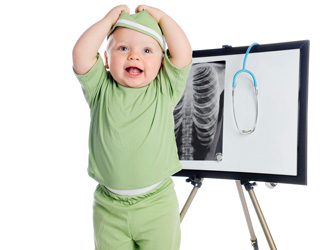Neuromuscular diseases include hundreds of different disorders that affect the nervous system and cause progressive muscle weakness. They include:
- Muscular dystrophies
- Charcot-Marie-Tooth disease
- Spinal muscular atrophy
- Myasthenia gravis
- Mitochondrial disorders
Because neuromuscular diseases can affect so many body systems, we personalize your child’s care.


